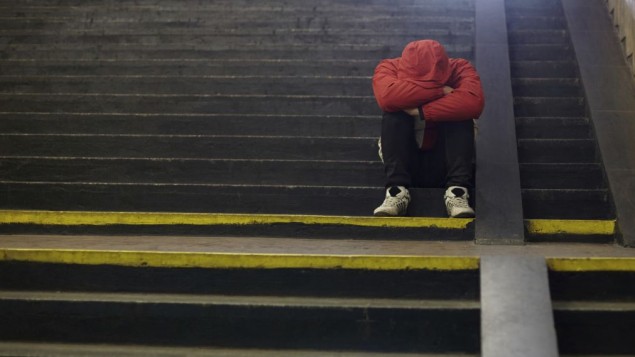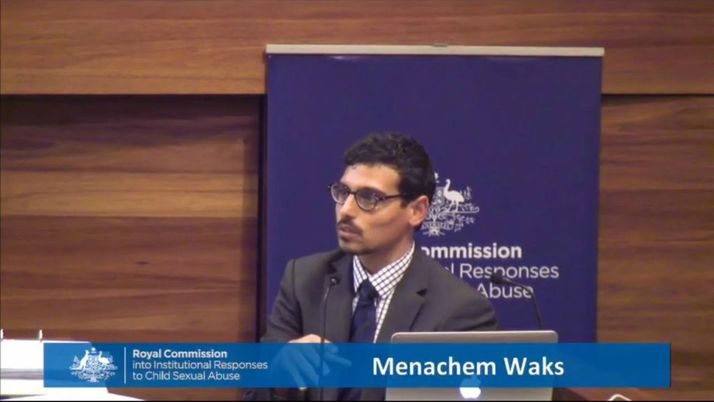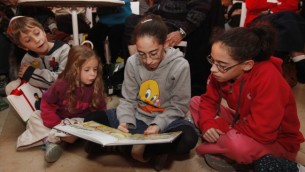With pedophiles seeking sanctuary in Israel, one way parents can protect kids
The Times of Israel
Melanie Lidman
4 December 2016
 The single best way to protect your child from predators is to simply have a talk with him or her about safe body practices and personal space, say activists. (iStock Getty Images)
The single best way to protect your child from predators is to simply have a talk with him or her about safe body practices and personal space, say activists. (iStock Getty Images)
Best thing families can do to defend children against sexual abuse, say activists, is to talk about it
Two alleged Jewish pedophiles fleeing possible arrest in their home countries have moved to Israel in the past month, a Jewish child rights group said Friday, adding to the growing list of those who have turned Israel into a haven for sex criminals.
According to Jewish Community Watch, at least 34 pedophiles in their sex offender database have moved to Israel in the past decade under the Law of Return, one of the Israel’s founding pieces of legislation, which guarantees every Jew a place in the country. An additional 12 pedophiles have moved to countries other than Israel.
Childrens’ rights activists contend there is a dark loophole in the Law of Return that allows Jewish pedophiles to effectively flee court-mandated supervision in their home countries and move to Israel with a clean slate.
In a grassroots effort to deal with the problem, activists and concerned parents are starting to raise awareness on social media, issuing “warnings” via text message, Twitter and Facebook to parents in neighborhoods where convicted or alleged pedophiles are moving.
But regardless of grassroots activism or lobbying for increased supervision, the most potent weapon towards protecting minors, activists agree, is also the simplest: talk to your children about the issue.
“People always ask me when is a good age to start talking about this issue,” said Manny Waks, a child sex abuse survivor and founder of Kol V’Oz, an international advocacy organization against child sex abuse in the Jewish community.
“There are age-appropriate resources from ages two or three. They’re not necessarily using those words, but they’re talking about things like having a healthy body image, body safety tips and communication,” he said. “It’s about creating that environment where the child feels secure and safe to disclose anything.”
Two alleged Jewish pedophiles fleeing possible arrest in their home countries have moved to Israel in the past month, a Jewish child rights group said Friday, adding to the growing list of those who have turned Israel into a haven for sex criminals.
According to Jewish Community Watch, at least 34 pedophiles in their sex offender database have moved to Israel in the past decade under the Law of Return, one of the Israel’s founding pieces of legislation, which guarantees every Jew a place in the country. An additional 12 pedophiles have moved to countries other than Israel.
Childrens’ rights activists contend there is a dark loophole in the Law of Return that allows Jewish pedophiles to effectively flee court-mandated supervision in their home countries and move to Israel with a clean slate.
In a grassroots effort to deal with the problem, activists and concerned parents are starting to raise awareness on social media, issuing “warnings” via text message, Twitter and Facebook to parents in neighborhoods where convicted or alleged pedophiles are moving.
But regardless of grassroots activism or lobbying for increased supervision, the most potent weapon towards protecting minors, activists agree, is also the simplest: talk to your children about the issue.
“People always ask me when is a good age to start talking about this issue,” said Manny Waks, a child sex abuse survivor and founder of Kol V’Oz, an international advocacy organization against child sex abuse in the Jewish community.
“There are age-appropriate resources from ages two or three. They’re not necessarily using those words, but they’re talking about things like having a healthy body image, body safety tips and communication,” he said. “It’s about creating that environment where the child feels secure and safe to disclose anything.”
 Manny Waks testifies before the Royal Commission into Institutional Responses to Child Sexual Abuse. (Courtesy Manny Waks)
Manny Waks testifies before the Royal Commission into Institutional Responses to Child Sexual Abuse. (Courtesy Manny Waks)
The Center for Jewish Family Life in New York publishes one such resource, in the form of a book to help parents discuss the matter with their kids called “Let’s Stay Safe!” The book is available in Yiddish, Hebrew and English, tailored for Haredi and national religious/Modern Orthodox communities in Israel and the United States.
Rabbi Yakov Horowitz, founder of the Center for Jewish Family life, said he is also hoping to adapt the books to Israel’s secular and Arab communities.
“It’s for parents to sit on the couch and read to their children, because research shows that parents have to be comfortable [talking about the subject],” said Horowitz. If parents are scared or uncomfortable, the child will absorb those feelings and will be unable to internalize the lesson, he added.
“The idea is it’s not really about talking about the actual sex,” said Horowitz, who also narrates a video on the same subject. “It’s really about getting children acclimated to the idea that they have their own personal space and they own it and they are supposed to defend it if someone makes them uncomfortable.
They should walk away and tell their parents. It’s about basic safety rules, good touching and bad touching. Some touching is OK, but not in your private space, and no one has the right to [make others] feel uncomfortable.”
In 2010, families in Beit Shemesh founded the NGO Magen, after they felt completely abandoned by the religious institutions when abuse was uncovered at those institutions. Magen also run activities for parents to guide them in this conversation. Their “Chug Bayit,” or home course, is “a crash course for parents in protecting their kids from sexual abuse,” and is geared towards English-speaking families.
Waks said even if parents are “completely unable” to have this conversation with their kids, simply telling people in their community that they had the conversation will give their children an extra layer of protection. “Pedophiles look for vulnerable targets, and if they know your child has been trained, they’ll groom a more simple target,” he said.
 Illustrative photo of children reading (Miriam Alster/Flash90)
Illustrative photo of children reading (Miriam Alster/Flash90)
He pointed out that children are unlikely to directly disclose abuse, but they may hint about spending time alone with an adult and connecting that to a physical complaint like “having a tummy ache.”
The way someone first responds when a victim says they have been abused is vitally important, Waks added. A victim who feels their claim is being ignored or belittled may never find the courage to speak of it again, internalizing the guilt and shame.
In previous decades, the emphasis was on teaching children “Stranger Danger!” But Waks said that 80% of abuse happens in a “family environment,” with someone the child knows, including family members, neighbors, babysitters, or other people who are known and trusted by the family.
Parents should also be aware that predators often “groom” their victims over a period of time, identifying things that the child lacks, including attention, love, or material goods. Parents should look into the situation if an adult suddenly starts spending a lot of time with their child or brings a lot of gifts.
But most predators will be able to slip through a parent’s warning system, especially in large families in Israel, where children have a lot more autonomy than American children and range free most of the day, Horowitz said. Which makes the conversation about abuse still the single best tool for protecting children.
“There is nothing that should be frightening [about this conversation],” said Horowitz. “Quite the contrary, it should be empowering to kids. Certain three-year-olds know, they have things that belong to them, so we’re saying their body also belongs to them.”
Originally published at The Times of Israel.
The way someone first responds when a victim says they have been abused is vitally important, Waks added. A victim who feels their claim is being ignored or belittled may never find the courage to speak of it again, internalizing the guilt and shame.
In previous decades, the emphasis was on teaching children “Stranger Danger!” But Waks said that 80% of abuse happens in a “family environment,” with someone the child knows, including family members, neighbors, babysitters, or other people who are known and trusted by the family.
Parents should also be aware that predators often “groom” their victims over a period of time, identifying things that the child lacks, including attention, love, or material goods. Parents should look into the situation if an adult suddenly starts spending a lot of time with their child or brings a lot of gifts.
But most predators will be able to slip through a parent’s warning system, especially in large families in Israel, where children have a lot more autonomy than American children and range free most of the day, Horowitz said. Which makes the conversation about abuse still the single best tool for protecting children.
“There is nothing that should be frightening [about this conversation],” said Horowitz. “Quite the contrary, it should be empowering to kids. Certain three-year-olds know, they have things that belong to them, so we’re saying their body also belongs to them.”
Originally published at The Times of Israel.